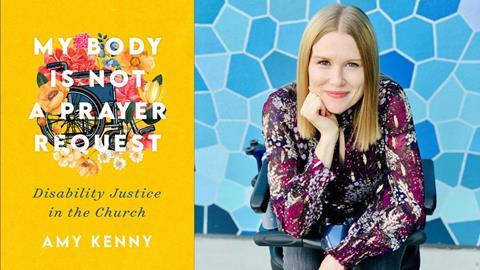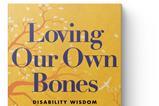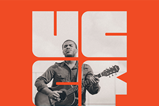Amy Kenny's new book is a tour de force, says our reviewer

"The hardest part of being disabled isn’t the pain, it’s the people."
If you’re reading that statement by Amy Kenny and nodding, it’s likely you’re disabled, and you will love this book.
If you feel puzzled by the statement (what can be worse than pain?) it’s likely you’re non-disabled. In which case, you need to read this book.
In a tour de force, Kenny whistles through ableism in society, how disabled people are presumed to be worthless, liars or subhuman. She then turns her attention to the Church, which often acts as though disabled people are only there as fodder for experimental healing prayer (hence the book title). In fact, she argues that church is the worst place for ableism. Our spiritual imaginations only have room for ‘cure’ from disability as a solution, whereas she argues for ‘healing’: total inclusion and celebration of disabled people.
One great example of how disabled people deserve to be celebrated is assistive technology. Touch screens and bicycles were invented as a result of disabled people identifying both the need and the solution, yet these inventions help everyone. Rather than assigning disabled people to the margins where they are expected to be passively grateful for scraps, she argues that the world benefits when disabled people have a more central role. Likewise, she uses the image of the banquet in Luke 14 to show how disabled people are central to God’s kingdom.
the world benefits when disabled people have a more central role
Though it is written as a persuasive argument, the glimpses of her story add poignancy. She never states her diagnosis but we discover that one of her legs lost mobility in childhood. As a teenager, she underwent excruciating physical therapy, adding to her pain, and weekly injections in her spine which made her vomit all night, all in the name of making her ‘normal’. Her realisation was that disability really wasn’t as bad as society claims and a lot less worse than weekly torture. It brings home the point that society in general - and medicine in particular - fears disability as a fate worse than death. Meanwhile, her school, despite being legally obligated to make disability provisions, refused to help her catch up when she was absent because of hospital appointments, because they didn’t want to ‘give her an advantage’.
Though her examples are American, the system and principles are the same in Britain: every disabled person knows the experience of having to perform and prove your disability in order to be believed. You have to fight and write reams of demeaning ‘evidence’ of your disability before accessing any disability benefit in the UK, and disability hate crime is at high levels. If anything, she underplays the levels of ableism in society and the Church.
every sentence is polished and tweetable in its own right
Above all, by exploring the disabilities of Moses, Mephibosheth, Jacob and more, she reclaims a vision of hope and freedom for disabled people, central to the gospel, which in turn releases the Church as a whole. Though some of her Bible exploration was familiar ground if you’ve read other disability theologians, her insight into the passages on ‘the lame’ was outstanding. Much of academic disability theology has been written by non-disabled people, which is a little like books exploring race written by white people. Kenny’s observations prove that the Church needs disabled people to interpret scriptures on disability. Although the book starts with depressing realities, she moves us towards a compelling proposal for the Church as a genuine place of hospitality and goodness, where everyone’s bodies and minds are honoured, By the end, you want to stand and cheer.
As you’d expect from a English lecturer, her material is well-researched, with plenty of statistics to make her case. Using cultural references, fast-moving sentences and razor-sharp wit, she makes the subject matter (if you’ll excuse the disability pun) accessible, rather than dry or academic. At the end of each chapter she has a hilarious and heartbreaking list of ‘top ten’ quotes people have said to her personally, including "I’d kill myself if I had what you had" and "You represent the world’s decay." Each chapter also has creative and prayerful exercises to do the work disability justice, which makes it an excellent choice for a book club.
The weaknesses? Though every sentence is polished and tweetable in its own right, there were times when I wished for a story or illustration to break it up. Her storytelling is brilliant, so it’s a shame there wasn’t more. I also would have appreciated a discussion on the element of suffering within disability. However, these are tiny things. Honestly, my biggest problem with this book was that I’m not sure if I can write my own book on disability now because this one is so good. An important and urgent message for the whole Church, superbly written. Highly recommended.
My body is not a prayer request by Amy Kenny (Brazos Press) is out now






































